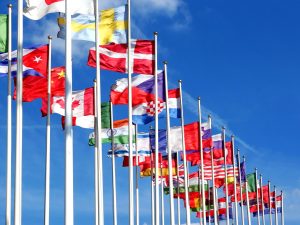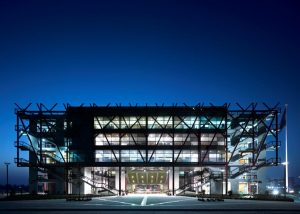“No citizen is apolitical; as a citizen, by definition, has to take interest in public affairs.” – Mohammad Hamid Ansari, 12th Vice President of India. The words of the veteran politician, diplomat and academician echo Mahatma Gandhi’s reasoning over a century ago when he realised the need to participate in active politics to promote change. That same sentiment is as relevant today as it was then and has wider resonance with people all over the world.
Looking at the way the current political scenario has shaped up universally, it is time to ask ourselves some hard questions. It is time to stand up and act as responsible citizens and members of society. As Swiss academic and philosopher Tariq Ramadan says, “You can’t say, ‘I don’t do politics’ because silence is a political statement.” We have found out time and again, silence supports the oppressor.
Last year’s general elections in India had a staggering 84.3 million youth eligible to vote for the first time. Interestingly, a study by Centre for the Study of Developing Societies (CSDS)-Konrad Adenauer Stiftung (KAS) only a couple of years earlier had revealed that around 46% of Indian youth had no interest in politics at all.
In times when there is a call for fresh blood in politics, it is ironic that a significant section of the youth had been politically indifferent. In spite of several political science programmes across Universities in India, the passion amongst youth to actively participate in the discourse seemed to have been missing for some time. That said, a few young politicians are coming to the fore in our country. Change is coming more swiftly in the global context. A new generation of young people have climbed up the political ranks as forerunners in national and international leadership. Today, as the world deals with the Covid-19 pandemic, it is younger global leaders like Jacinda Ardern or Justin Trudeau who have come out shining.
Yet to effect political and social change in India and in the global scenario, we need more youth actively involved in politics. One of the top Universities in India has picked up the gauntlet of shaping political game-changers of tomorrow. The B.A. (Hons.) Political Science programme launched by Jindal School of International Affairs (JSIA) aims to nurture not just political researchers of the future but political leaders as well. Here’s how JSIA will prepare the agents of change we need in these challenging times:
- Encouraging students to take their place in the world
There is no denying that politics has the power to shape people; influence our ideas, thoughts and actions. But how do we fully understand state, nationalism, populism, development, and welfare in a competitive political and social landscape? Then there is the burning question of politics and ethics. The changing dynamics between the two has become a global concern in recent times. The political science programme at O.P Jindal Global University has been designed to help students grasp all forms of political thought, activities and phenomenon on local, national and international levels.
At the heart of the programme lies the belief that only when the youth understands and appreciates political discourse, can it think about the questions of political judgment, and thereby leadership. As Prof. Rajeev Kadambi, Associate Professor, JSIA says, “The program aims to cultivate thoughtful and empathetic individuals who will know how to think and live courageously.”
- Potent blend of theoretical learning and practical exposure
When you encourage the youth to question, you ignite a spark and fuel imagination. Discussions, debates and dialogues among students and teachers can flow freely in an environment that fosters freedom and active participation. Opening up among peers in the classroom sets the tone for students to become active members of society and politics.
The B.A. (Hons.) Political Science programme covers a wide spectrum of issues relevant to our times along with perennial questions about freedom and justice, according to Dr. Sweta Sen, Assistant Professor, JSIA. The learning isn’t restricted to theoretical discussions, as students get practical exposure through simulations, case studies, workshops and more.
“Students of the programme will have a practical understanding of aspects ranging from policy making to political behaviour,” says Asst. Prof. Sen. Thus, students not only gain a perspective on lived political experiences in the real world, but have the opportunity to gather insights from their own internship experiences in political and organisational setups.
- Understanding of global political landscape through international collaborations & perspectives
O.P. Jindal Global University has built strong international relationships with educational institutions. Students can benefit as they get global exposure through exchange programmes at these universities. Summer schools at University of Oxford, U.K.; the University of Granada, Spain; and the Fletcher School at University of Tufts, U.S.A. B.A are also an option for students.
“Besides the study abroad programmes there are lectures happening across the campus, which give students varied perspectives on Indian and global political landscapes,” adds says Asst. Prof. Sen. As a result, the programme aims to consistently spark students’ political imagination and broaden their perspectives to hone their political skills and leadership.
- Mentorship from top academicians across the globe
Mentors, especially in the world of politics, have always held a special place in the lives and careers of leaders. For every Jacinda Ardern, there is former New Zealand Prime Minister Helen Clark, who not only led the way, but offered close mentorship. Students of B.A. (Hons.) Political Science programme will have the advantage of mentorship from JSIA’s outstanding team of Indian and international faculty members.
True to its name, the global university has attracted academics and scholars from all over the world, who pass on their vast knowledge and experiences to students on campus. With degrees from top foreign universities under their belt, and insights gained from varied institutions and organisations, they are highly equipped to foster an environment that brings the best out of their mentees.
- Holistic growth of future political science graduates
The relationship between politics and society, economy, business, culture, technology, and more is a dynamic worldwide phenomenon. It is important to understand politics in the context of other areas to unravel those connections. What is the psyche of the voter? What motivates a political leader? How do corporate donations and funding influence political ideologies and actions? The answer to these questions requires insights into psychology, sociology, economics, and other critical social science subjects, which will be explored through the multidisciplinary curriculum. Lateral thinking is the key to the success of future leaders, academics, researchers and other professionals in the realm of political science.
O.P Jindal Global University has emphasised on interdisciplinary learning since its inception. As students of the Political Science programme get insights into niche topics like gender and sexuality, nationalism and populism through elective courses, they can also gain wider perspective by picking subjects in law, journalism, business and other streams.
- Wide variety of career opportunities
Prof. Mohsin Raza Khan, Associate Professor and Assistant Dean, JSIA believes the political science programme is a strong foundation for dynamic career opportunities for students. “You will have out of the classroom experiences through internships, hopefully with political parties, think tanks, and apply the knowledge you have learned. So, in the future, you can work for political parties, private organisations, think tanks, community organisers,” he says.
The programme is designed to be way more than an understanding of governments and politics. It endeavours to hone critical, communication, and research skills amongst students so that they are prepared for any career they choose. But above all, it is the perfect launch pad for politically-inclined youth, who want to drive change—to transform into the leaders that our world needs.



